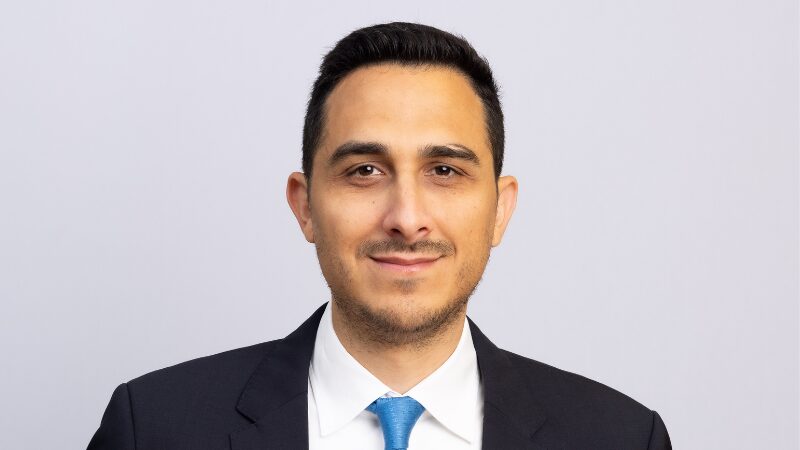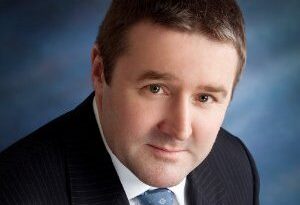“The Middle East is polarised – home to both large players and an increasing number of smaller new funds”
Ahead of the Hedge Funds Club event in Dubai on 1st October, Mazen Najjar, VP of prime services sales at Marex, shares insights for fund managers seeking to raise funds or set up in the region.
Tell us about yourself and your role at Marex.
I have 15 years’ experience in financial services, with the past eight years focused on prime brokerage in the UAE. In October 2024, I joined Marex as the first member of the prime services team in the region. Whilst Marex already had a strong and established presence in the Middle East – with over 100 employees across Dubai and Abu Dhabi – this marked the beginning of a dedicated effort to build out our prime services capabilities locally and drive our ambition of becoming the leading prime broker for hedge funds, family offices and investment managers in the Middle East.
A key aspect of my role is developing the prime services team’s regional sales strategy, strengthening our presence and partnerships in the Middle East and providing localised support and tailored solutions to our growing client base in the region.
There are a lot of growth opportunities in the region right now – and we are playing a significant role in supporting emerging managers through our multi-asset prime services solution, which includes portfolio financing, execution services, segregated custody, middle and back-office support, capital introduction, outsourced trading and new launch/business consulting.
Our team operates as part of the wider Marex offering in the region, which includes structured products, futures and options and clearing. As a result of significant investment in the Middle East, we have the local scale and expertise to support the evolving needs of our institutional clients in the region.
How does Marex Prime Services stand out in the region?
Globally, we have a great reputation from over 25 years in prime services. We currently work with over 600 clients worldwide. What sets Marex apart in the Middle East is the fact that we offer prime brokerage on both physical cash securities as well as synthetically, via total return swaps. That’s not something commonly available in the region.
In many ways, our platform mirrors what you would expect from a global investment bank. We have a broad offering and institutional-grade infrastructure, but without the high entry thresholds of large investment banks, and we provide a high-touch service. This puts us in a unique position in the region and makes us a strong option for managers who may not meet Tier 1 bank criteria, as well as for larger managers who are looking for a credible second prime broker to complement an existing relationship. As a nimble, non-bank prime broker, with a BBB- long-term issuer rating from both Fitch Ratings and S&P Global, Marex Prime Services is in a strong financial position and offers flexible, institutional-grade solutions tailored to the specific needs of smaller and emerging funds.
Capital introduction is another key strength and a real differentiator, and we have dedicated cap intro expertise in our Dubai-based team. Capital introduction is a service that a lot of funds in the region are actively seeking. Marex has a strong track record of being able to connect them with local and global allocators in a meaningful and targeted way.
What is your advice for managers wishing to raise funds in the region?
The investor base in the region is concentrated but highly relationship-driven, so understanding the cultural nuances and allocator priorities is key. Managers seeking to raise funds in the Middle East need to have a local presence and be able to meet allocators in person. Regular networking is very important here. To attract funding, managers need to demonstrate a strong track record, performance and a decent pedigree. They will also need to be working with credible service providers as this provides evidence of operational strength.
Does the Middle East differ from other regions in terms of capital raising?
Yes, quite significantly. While relationship-building is central to capital introduction everywhere, it plays an even more critical role in the Middle East. Being introduced to an allocator by someone within that allocator’s trusted network carries even more weight than it might in other markets. Another key difference is the way fund managers approach investors. In markets like London or New York, managers typically start with a defined strategy and seek out allocators aligned with that specific approach. In the Middle East, it often works the other way around. Managers tend to start with the investor, identify their needs first, and then build a solution or product set around those requirements.
This client-first mindset means flexibility is essential. Managers who succeed here are typically those who can adapt their offering, work across multiple asset classes and provide tailored solutions. Having a prime broker that offers a broad, multi-asset platform is a real advantage. It gives managers the tools and support to grow their business around the specific demands of high-net-worth individuals, family offices, and institutional allocators in the region, whatever their requirements may be.
Outsourced trading is also part of Marex’s prime services offering. How much demand is there for outsourced trading from fund managers in the region?
This is another area which differs from other regions. In London and New York, many larger firms use our outsourced trading solutions as a standalone service, often to supplement their trading desk by adding an extra asset class or entering a new region, for example. In the Middle East, we see emerging managers using us for both prime and outsourced trading together, not as a supplementary service. We act for our clients on the street, use their broker lines and their systems. A huge advantage of our outsourced trading solution for managers setting up in the region is that they don’t need to build their own trading function because they can leverage ours. The ability to plug into an institutional-grade trading desk from day one is a major advantage.
The region is attracting new launches at a rapid pace. What should managers consider if they are setting up in the region?
In terms of hedge funds, the Middle East market is polarised – it is home to both extremely large, established players and an increasing number of smaller, newly launched funds. We’re seeing a rise in talent spinning out from larger institutions to set up independently. This trend, and the opportunity to support new managers on the ground from the outset, is one of the main reasons we expanded our prime services team in the region.
For those setting up, early decisions carry long-term implications, particularly around credibility, scalability, and appeal to institutional investors. One of the first steps is choosing where to base the fund and which regulator to operate under – typically either the DFSA in Dubai or the FSRA in Abu Dhabi. Both are internationally respected but have different timelines, costs, capital requirements and expectations.
Choosing the right fund structure is another big decision as this influences fundraising, tax efficiency and reporting requirements. Some allocators are more comfortable with offshore frameworks, but others favour UAE-regulated funds with a clear local footprint. There’s no right or wrong approach, but the structure needs to support the fund’s ambitions.
Ultimately, having the right local support from the outset can make a significant difference. Working with partners who understand the regulatory landscape, investor expectations, and operational requirements helps managers navigate the set-up process more effectively, build credibility and accelerate growth.









